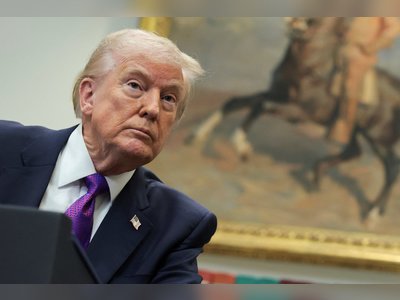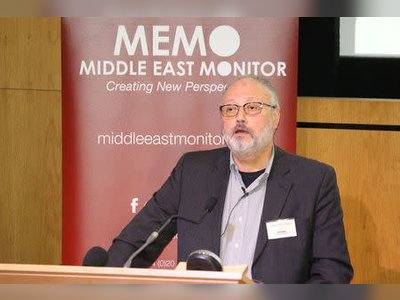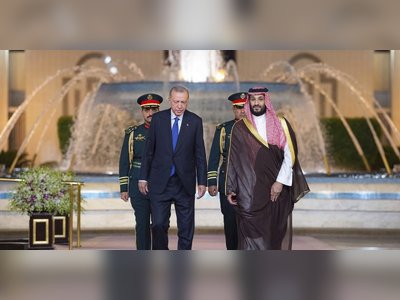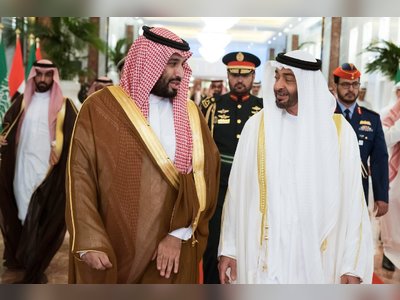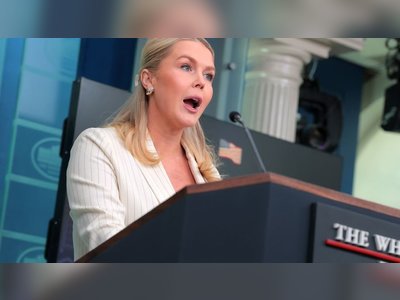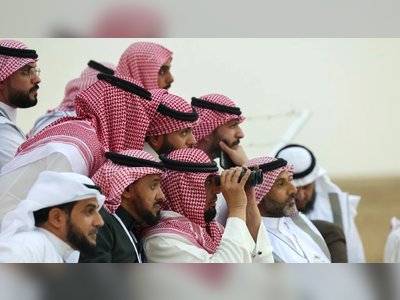
Tech advances offer new hope for easing looming Middle East water crisis
As the effects of climate change are increasingly felt worldwide, countries in the Middle East and North Africa, which was already the most water-scarce region in the world, are facing ever-greater depletion of their water resources.
Meanwhile economic instability often stands in the way of effective water-related development and management programs.
These were among the key messages from an online panel discussion hosted by Middle East Institute in Washington on Wednesday.
Researchers and scientists said nations in the Arab world must embrace new ideas and technologies to help preserve water supplies and find fresh ways to limit loss.
Levels of water scarcity vary from area to area in the MENA region, and so diminishing supplies could lead to greater political instability and more conflicts between states over access to precious resources, they warned.
While older methods of gauging rainfall, precipitation and evaporation remain valid in the modern era, they recommended that satellite-imaging technology be used to monitor and better understand precipitation.
However, Raha Hakimdavar, adjunct professor of water and climate science at Georgetown University’s School of Foreign Service in Washington, D.C., noted that the accuracy and availability of satellite imagery varies from place to place, and so it cannot resolve all the questions water scientists need answered to help them develop proper solutions to water loss in the region.
For example, the resolution of images and how frequently they are taken affect the accuracy of the data, she said.
Youssef Wehbe a non-resident scholar with the climate and water program at the Middle East Institute, said: “Today, the MENA region is placing unprecedented stress on water supplies, leading to an abrupt increase in water demand, threatening local food security and harming regional ecosystems.”
The region cannot keep up with the growing demand for water, he added, due in part to its nature as an arid and semiarid region in which there is less than 200 milliliters of precipitation a year and evaporation levels exceed 55 percent.
“As a consequence, the available water resources cannot cope with human demand in all major sectors,” he said.
American, European and Japanese satellites have produced accurate and reliable data about water resources in America, Europe and parts of Asia. In the Middle East, however, there continued to be a significant lack of accuracy in the available satellite data and imagery related to water issues, mainly as a result of lack of participation in initiatives to collect it.
However, some Arab Gulf states, such as Saudi Arabia, the UAE and Qatar, have established ambitious and promising space programs that could usher in a new age of satellite-based water research, said Wehbe, who is also a program officer for the UAE Research Program for Rain Enhancement Science.
Enrique R. Vivoni, a professor at the University of Arizona, said the amount of ground water lost over a 10-to-15-year period in the MENA region, based on research published in respected science journals, is staggering.
“The terrestrial water-storage loss in the Middle East is humongous and it’s on the scale of the average flow of the Colorado River Basin, which amounts to about 10 to 25 cubic kilometers of water lost to the atmosphere,” he said.
Vivoni added that the greatest loss of non-renewable underground water resources, based on satellite imagery, has been observed in Iran, northern Saudi Arabia, eastern Turkey and Iraq.
He urged officials in these countries to investigate the data to determine whether it is correct and, if so, to put measures in place to reduce or reverse the problem.
These were among the key messages from an online panel discussion hosted by Middle East Institute in Washington on Wednesday.
Researchers and scientists said nations in the Arab world must embrace new ideas and technologies to help preserve water supplies and find fresh ways to limit loss.
Levels of water scarcity vary from area to area in the MENA region, and so diminishing supplies could lead to greater political instability and more conflicts between states over access to precious resources, they warned.
While older methods of gauging rainfall, precipitation and evaporation remain valid in the modern era, they recommended that satellite-imaging technology be used to monitor and better understand precipitation.
However, Raha Hakimdavar, adjunct professor of water and climate science at Georgetown University’s School of Foreign Service in Washington, D.C., noted that the accuracy and availability of satellite imagery varies from place to place, and so it cannot resolve all the questions water scientists need answered to help them develop proper solutions to water loss in the region.
For example, the resolution of images and how frequently they are taken affect the accuracy of the data, she said.
Youssef Wehbe a non-resident scholar with the climate and water program at the Middle East Institute, said: “Today, the MENA region is placing unprecedented stress on water supplies, leading to an abrupt increase in water demand, threatening local food security and harming regional ecosystems.”
The region cannot keep up with the growing demand for water, he added, due in part to its nature as an arid and semiarid region in which there is less than 200 milliliters of precipitation a year and evaporation levels exceed 55 percent.
“As a consequence, the available water resources cannot cope with human demand in all major sectors,” he said.
American, European and Japanese satellites have produced accurate and reliable data about water resources in America, Europe and parts of Asia. In the Middle East, however, there continued to be a significant lack of accuracy in the available satellite data and imagery related to water issues, mainly as a result of lack of participation in initiatives to collect it.
However, some Arab Gulf states, such as Saudi Arabia, the UAE and Qatar, have established ambitious and promising space programs that could usher in a new age of satellite-based water research, said Wehbe, who is also a program officer for the UAE Research Program for Rain Enhancement Science.
Enrique R. Vivoni, a professor at the University of Arizona, said the amount of ground water lost over a 10-to-15-year period in the MENA region, based on research published in respected science journals, is staggering.
“The terrestrial water-storage loss in the Middle East is humongous and it’s on the scale of the average flow of the Colorado River Basin, which amounts to about 10 to 25 cubic kilometers of water lost to the atmosphere,” he said.
Vivoni added that the greatest loss of non-renewable underground water resources, based on satellite imagery, has been observed in Iran, northern Saudi Arabia, eastern Turkey and Iraq.
He urged officials in these countries to investigate the data to determine whether it is correct and, if so, to put measures in place to reduce or reverse the problem.
